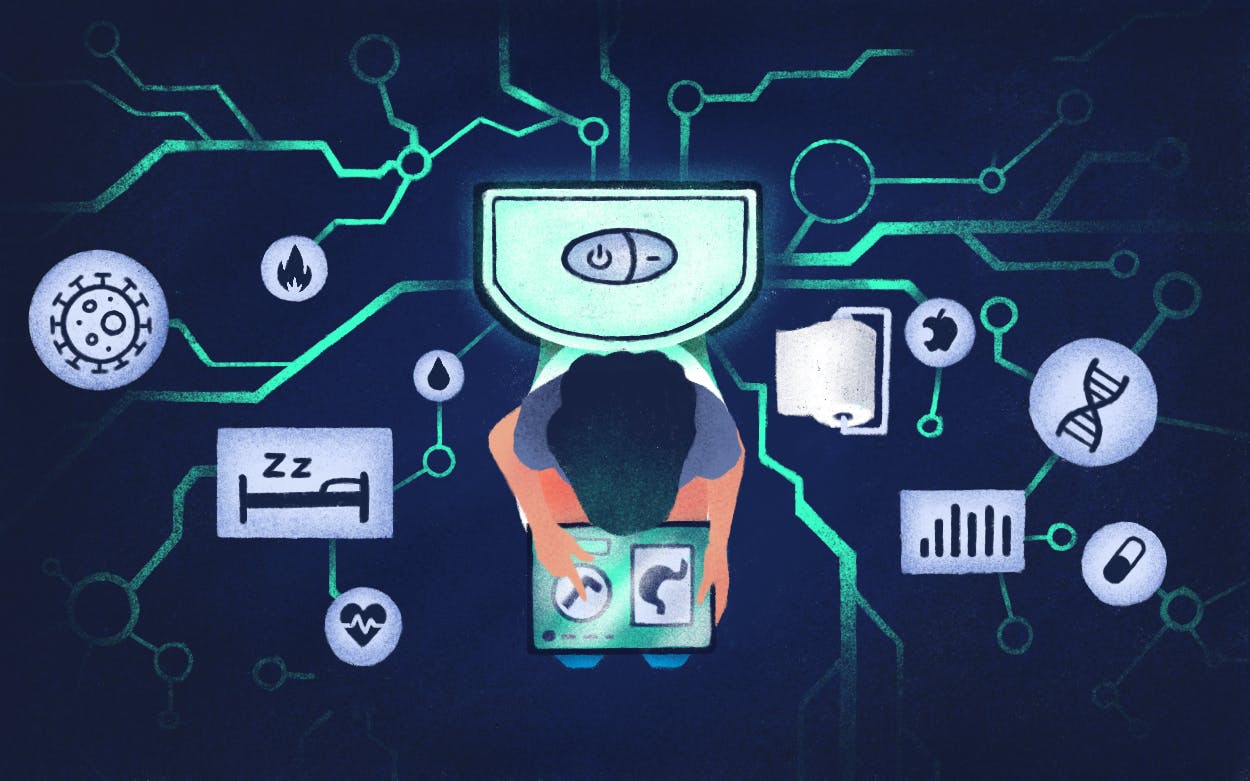Smart toilets as health sensors of the future?

Smart toilets? Seriously?
There are a few pictures of the future that we can't get rid of, no matter how old they are. Think of flying cars or intelligent refrigerators. Every few years, they are pulled out of the idea drawer and serve as a demo for a new generation of technologies. It is now time to ask ourselves, does this also apply to smart toilets?
The Guardian featured an in-depth article on the latest generation of smart toilets and their potential relevance in the healthcare industry. Smart toilet developers are convinced that we are virtually flushing away supposedly valuable data. That's because urine and feces are data-rich and readily available samples that have been underutilized, according to the U.S.-based Duke Smart Toilet Lab.
If this taboo subject could be made socially acceptable, researchers say toilets could make a career as alternative sampling devices. According to gastroenterology experts at Digestive Disease Week 2021, they could also take the form of smart home retrofit devices. Data collection would integrate seamlessly and unobtrusively into everyday life, and the analysis could help detect acute or chronic gastrointestinal diseases early.
And further: Scientists believe defecation also contains information about cancer and other diseases, and that it can reveal whether you've been exercising, what pills you're taking, how well you've been sleeping, and how high your calorie intake has been. Many diseases can be detected in the composition of the intestinal flora. This means a smart toilet could also give advice on diet and well-being, which would harmonize well with the increased media interest in intestinal health—our German readers are probably familiar with Darm mit Charm by Giulia Enders, and our British readers might know You Are What You Eat by Gillian McKeith.
Our perspective
Is a smart toilet a legacy future or really the future? Well. Let’s frame it this way: Sensor-based smart home systems and image recognition application costs have dropped significantly in recent years. Intelligent toilet innovations are therefore inevitable. If the basic components of your product are affordable, so are the experiments.
It's interesting to see that scientists at Stanford are embracing the topic as much as traditional companies and startups. Even the Office of Technology Assessment at the German Bundestag (TAB) covered smart toilets recently in a short profile. It is clear that the topic will have to deal with discussions about data sovereignty just like any other IoT device. When you start measuring body-related data, you cross the privacy line—and few things are more personal than the result of going to the bathroom. So it's good to see that the topic is not just subject to hype.
In addition, we should pay more attention to the fact that almost half of the world's population does not have access to sanitary facilities or a toilet. That’s the more crucial problem to be solved. But there is a dormant opportunity in the automated analysis of fecal matter. The application could be particularly relevant for nursing and retirement homes; also, you don't have to get used to it in everyday life due to a pipe installation.
Needless to say, whether smart toilets actually have health benefits must be clarified in further studies. But for us, it seems obvious that there are clearly outlined use cases. Yes, smart toilets are unlikely to radically transform our daily lives in the next 20 years, but much like flying cars and smart refrigerators, they will have a big impact in specific small-scale healthcare use cases. And that justifies any research on the subject. Smart toilets are here to stay.